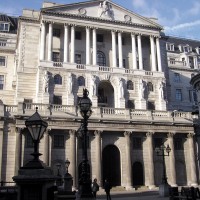
The historically low bank rate has “pushed down” on new mortgage rates, the Bank of England said.
Mortgage lending
It was suggested that the heightened risk to borrower credit and a recent increase in wholesale funding costs had affected the pricing of mortgages, leading banks to rebuild margins by raising rates on higher loan to value (LTV) deals as there was less lender competition in that space due to the effects of the pandemic.
The committee noted that while the 0.1 per cent rate had been passed on in full to most tracker and standard variable products, rates on new fixed mortgages at low LTVs remained flat and higher LTV mortgages had seen rate increases.
However, the committee claimed that without cutting the base rate to its historically low level, it was possible rates would have risen in all loan to value ratios.
It said: “It was likely that the reductions in bank rate and reference rates had pushed down on new mortgage rates.”
The MPC was not expected to adjust monetary policy at this meeting.
Negative rates ‘in the toolbox’
Speaking to journalists after the committee’s decision was published, BoE governor Andrew Bailey said negative interest rates were part of the bank’s toolbox but added, “at the moment we do not have a plan to use them”.
Wider economy
The economy will recover slower than expected but GDP will not contract by 14 per cent as the committee initially predicted, but rather nine per cent.
It was forecast that GDP would continue to recover in the near term, growing by nine per cent in 2021 and 3.5 per cent in 2022, but not exceed its pre-Covid level until the end of 2021.
Bank staff estimated that UK-weighted world GDP had fallen by nine per cent in Q2, larger than any quarterly fall recorded during the global financial crisis and 12 per cent lower than its pre-Covid level in 2019 Q4.
Unemployment was also predicted to rise to 7.5 per cent by the end of the year as support schemes wind down.
The committee also voted to maintain quantitative easing at £745bn.















